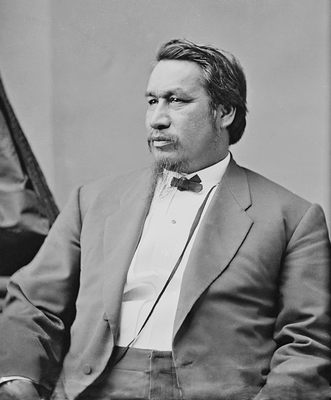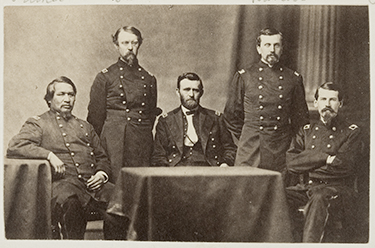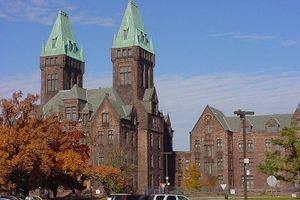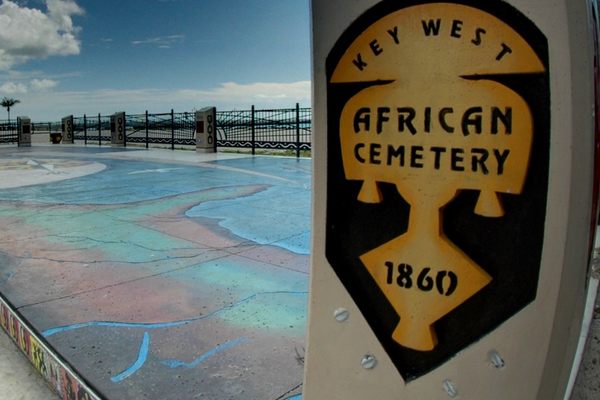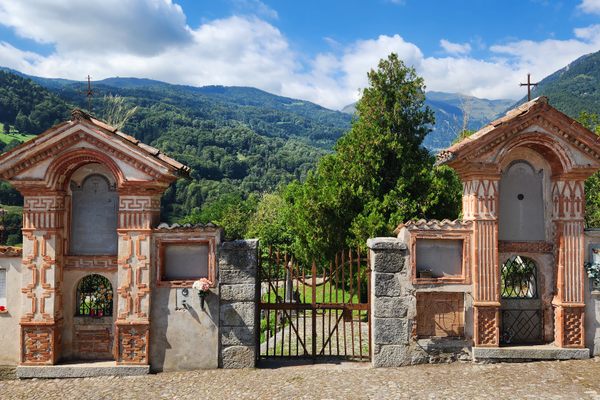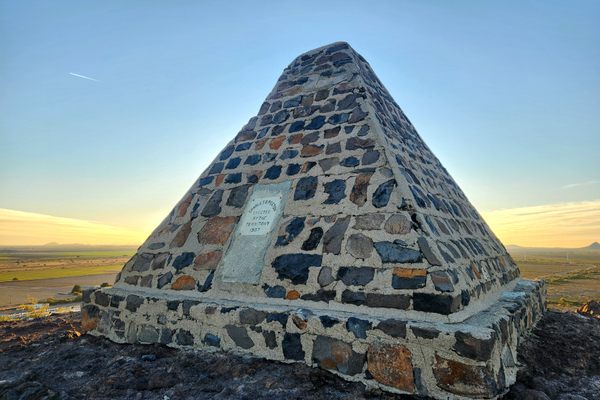About
In the shadows of the monument to renowned Seneca chief Red Jacket is the much smaller grave marker for his great grand-nephew, Ely S. Parker. Known by his Seneca name, Do-Ne-Ho-Geh-Weh meaning “Keeper of the Western Door,” Parker had a front-row seat to some of the greatest moments in United States history. He also reached the highest echelons of government despite lacking U.S. citizenship.
Born in 1828 on the Tonawanda Reservation near Indian Falls, New York, Parker was a scholar from an early age. After traveling to Canada and not being able to understand those around him, he was determined to learn English. He studied at a local missionary school and with help of Lewis Henry Morgan, he attended the elite Cayuga Academy. He went on to study law, but was denied entry to the NY bar because of his race.
Undaunted, Parker continued to work as a sachem and diplomat for the Seneca within the Iroquois federation, and at the age of 23, he was recognized as the best negotiator among his colleagues. At the same time, he studied engineering at Rensselaer Polytechnic Institute and eventually procured employment maintaining portions of the Erie Canal.
His skills as an engineer later gained him an appointment as a construction superintendent for the U.S. Treasury Department in Galena, Illinois. Here, he met and befriended Galena’s most famous son, Ulysses S. Grant.
When the Civil War erupted, Parker was unable to procure a military appointment until 1863 when Grant appointed him to his personal staff. As a result of his exceptional service, Parker was on hand at Appomattox where he drafted the surrender agreement between Grant and Robert E. Lee.
After leaving the military as a Brevet Brigadier General, Parker was later appointed by Grant as the first Native American Commissioner of Indian Affairs to the astonishment of many.
In his later years, Parker was a businessman and investor, but lost much of his fortune in the financial panics of the late 19th-century. He died impoverished in Fairfield, Connecticut, and had little in his possession, except for a carbon copy of the Appomattox surrender and a medal he inherited from Red Jacket once bestowed by George Washington.
His burial in Connecticut was conducted in Algonquin territory, which the Seneca considered inappropriate. Parker was exhumed in 1897 and reinterred in a simple grave at Forest Lawn next to his hero.
Related Tags
Community Contributors
Added By
Published
December 18, 2020



